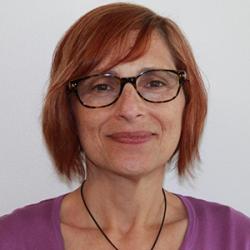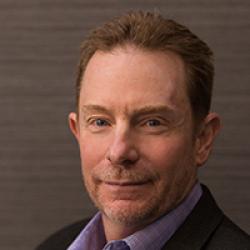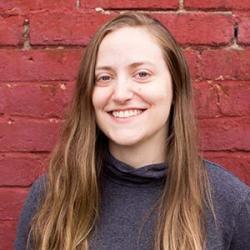For many people living in rural areas of the United States, the fact that health care is not easily accessible is just a part of life. As a result, many forgo routine care or delay care for chronic illnesses, and some suffer tragedies due to the delay in receiving emergency treatment.
Watching loved ones suffer through these experiences is often the impetus behind a rural student’s decision to pursue a career as a physician. Fewer than 5% of all medical students come from a rural area, and just 11% of physicians practice in rural areas, despite about 20% of the U.S. population living in one. Data shows that physicians who come from a rural area are more likely to practice in a similar setting.
AAMCNews interviewed seven graduating medical students who applied to The Match® this year about how their rural backgrounds challenged and inspired them on their paths to becoming physicians.
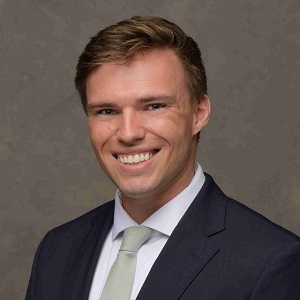
Paul Wilson, 27
University of Washington School of Medicine
Orthopedic surgery
Paul Wilson grew up corralling cattle, feeding chickens, milking goats, and for a few summers, hauling nets on a fishing boat off the coast of Alaska.
To Wilson, a fourth-year student at University of Washington School of Medicine, the connections between those experiences and his hoped-for career as an orthopedic surgeon are clear.
From a young age, life on his family’s ranch in Potomac, Montana, fostered problem-solving skills that will serve him well in the world of medicine.
“On a ranch, there often aren’t clear-cut answers and simple fixes. Instead, you have to explore and experiment. You first try building a fence one way, and if it fails, you have to try another way.”
During his first orthopedic rotation last year, Wilson also saw numerous physical similarities between orthopedics and ranching. “The tools for both fields share a lot in terms of functions, shapes, and goals, like getting a good grip or applying force in a certain position or direction,” he notes.
But beyond providing specific skills or tools, growing up on a ranch instilled in him some fundamental values, Wilson says, including a deep sense of responsibility and collaboration.
“I knew we were working toward something bigger. You’re part of a team on a ranch, working to contribute to a larger goal,” much like in medical practice, he says.
Ranch life also made him appreciate how thoroughly people depend on their bodies when their jobs require physical labor.
“You see how much people need their bodies to make a living and to bring them a sense of purpose,” he says. “When that’s threatened, it completely changes your life.” Wilson saw that firsthand in his own family: His father suffered mobility issues his entire life after falling from a grain silo, and his grandfather lost two fingers in a cattle-chute accident.
Wilson hopes to provide access to orthopedic care to rural patients, who sorely need it. “There are a lot of good solutions. Often, we can get people back to a high level of functioning, even after catastrophic injuries,” he says.
He also hopes to live on the family ranch again one day. “There’s a great connection to the land. You can raise your own food and be surrounded by beauty,” he says. “It’s a pretty great way to live.”
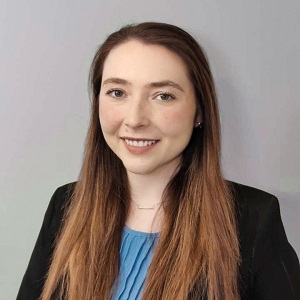
Leslee Baker, 26
University of South Carolina School of Medicine
Pediatrics
For Leslee Baker, falling off a zip line and suffering a compound fracture of her arm turned from “very scary” to “an overall good experience.”
Baker, then 14, spent three days in a hospital after the accident, giving her lots of time to observe and talk with doctors, nurses, and other medical staff. They made a life-changing impression.
First, she says, “they were able to ease my worries — including me on decisions and explaining things to me.”
And the more Baker learned about their work and how they helped patients, the more she realized that “this is what I want to do when I grow up.”
Growing up in rural Barnwell County, South Carolina, Baker, her sister, five nearby cousins, her parents, and grandparents ran a family farm, growing cotton and raising chickens. (Her mother is a lab technician at a local hospital, and her father is an electrician.)
Coming from a rural area made Baker feel somewhat intimidated when she arrived at medical school. Everyone seemed better prepared to navigate their way to success: They came from bigger communities with more educational resources and opportunities, and often from families of doctors. They knew the pathways to becoming a doctor beyond paying attention in class, such as applying to the best clerkships and residencies. She learned to “lean on my peers” to absorb what they knew about the medical-education system.
On the other hand, Baker’s upbringing helps her connect with patients from rural areas. She innately understands how they might lack resources to maintain their health, including insurance coverage and transportation to medical care. Baker notes that the hospital where she went after her zip line accident was an hour from her home.
“You can prescribe a medication, but you have to think, ‘Are they going to be able to get this?’” Baker says. “If they aren’t able to get it, you explore other means” of treatment or medication access.
Baker often builds rapport with patients by talking about her small hometown and her work on the farm.
“It puts people at ease,” she says — just like doctors did for her when she was a kid.
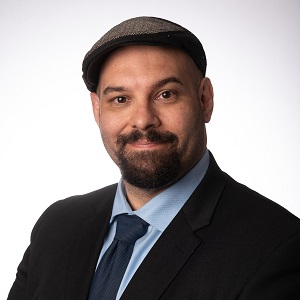
Jonathon McCann, 43
Northeast Ohio Medical University
Family medicine
Growing up in rural Greenup County, Kentucky, Jonathon McCann got used to people showing up at his house asking his mother to treat their wounds.
“We would come home from school and there’d be people sitting in a car” waiting to see his mom, a surgical nurse at the nearest hospital — in Ashland, 40 minutes away. “Someone had smashed their finger in a tractor door. She’d tell them, ‘That’s broken,’ and she’d wrap it. That saved people from having to go all the way to Ashland and saved them from the bills.”
That personal care infused McCann with a vision of becoming a doctor. The cost of college put that out of reach when McCann graduated from high school. He went looking for work in northeast Ohio, where he had extended family, and spent his early adulthood as a laborer: delivering beer, hanging drywall, shingling roofs, installing television cable. For a while he lived in his car.
His hard work and growing skills provided a good income — enough, after he got married, to support his wife through veterinary school. After she launched her career, they traded roles: She supported him through undergraduate and medical school.
Today they live with their two children on a silage farm (which produces livestock feed from crops) in rural Mahoning County, Ohio, about 30 minutes from the medical school. As McCann embarks on the next phase of his medical career, he seeks a residency close to home.
“I’m not leaving my wife and kids,” he says. “I love my family as much as I want to be a doctor.”
McCann sees his rural life as a plus for his patients. At a time when many people increasingly distrust medical experts, McCann believes he can build bonds with patients from similar backgrounds: “If they know me, know where I’m from — they can see that I don’t live in a mansion — they can learn to trust me.”
And with rural areas facing dire physician shortages, he has advice for medical colleges: “You can’t take people from metropolitan areas and force them to integrate into a rural community. If you want rural physicians, you need to take people from rural areas and make them physicians.”
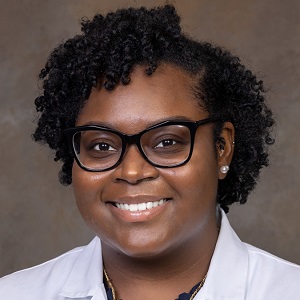
Deja Sibert, 28
Mercer University School of Medicine
General surgery/orthopedic surgery
Not many people from Deja Sibert’s hometown of Sparta, Georgia (population: 1,827), graduate from college, but that didn’t deter Sibert.
School came easily to her and, after growing up witnessing her grandfather’s experience having both legs amputated as a result of complications from type 2 diabetes, she had decided to study biomechanical engineering to make better prosthetics.
That dream changed after tragedy again struck her family. When Sibert was in high school, two of her brothers were in separate car accidents 30 days apart, both of which resulted in their becoming paralyzed. They each had to be airlifted to a hospital in Augusta, and the remoteness of their accidents delayed treatment.
“If there were someone in the immediate area who could have helped them, maybe things would have turned out differently,” Sibert says. “I thought maybe I could be that person.”
Sibert faced a rude awakening when she started college at Georgia State University and found that her days of skating through classes without studying were over. She had to develop new study habits at the same time she was adjusting to city life in Atlanta.
But Sibert says growing up in Sparta gave her the grit she needed to persevere. The town, which brought in wealth as a cotton-plantation county, experienced a population exodus and economic downturn after the cotton industry was disrupted by World War I. In 2023 55% of the residents of Sparta lived below the federal poverty line.
“We don’t have as much as other people, and it instilled in us resilience; it instilled in us determination,” Sibert says.
Medical school also proved challenging, as Sibert’s grandmother’s health had started to decline and she, too, became a double amputee due to type 2 diabetes. Sibert worked to balance her studies with supporting her mother as her grandmother’s primary caregiver.
These experiences only increased Sibert’s determination. She matched into a preliminary year in general surgery, and hopes to go into orthopedic surgery so she can help people maintain their mobility. And although orthopedic surgery is not easily practiced in rural areas, she hopes to someday be able to spend a few days a month working at a clinic in Sparta.
“I’m very proud of where I come from. I love it, but I also know it has shortcomings,” Sibert says. “The way things are there — it’s made me who I am. It’s a mighty place.”
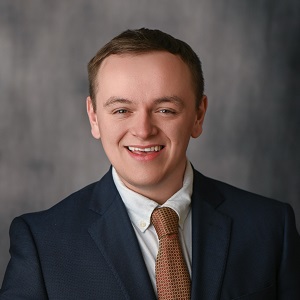
Dennis Boynton, 26
Michigan State University College of Human Medicine
Internal medicine and oncology
When Dennis Boynton was 13, his mother experienced a devastating blow: She lost her beloved job as an aide in a long-term care facility in northern Michigan.
“If ever a person was meant to do the work they were doing, my mother was. It was heartbreaking to see” her lose her job, says Boynton, now a fourth-year student at Michigan State University’s College of Human Medicine.
What’s more, the job loss was sparked by his mother’s difficulty walking, and it prompted her to finally seek care. The disturbing diagnosis she received was congestive heart failure.
Soon, Boynton was helping his mother with daily tasks such as getting dressed and moving around the house. He also offered her emotional support and took a weekend job to supplement the income of his father, a cement-truck driver reliant on seasonal work. “The caregiver role was built into me from a young age,” he says.
Unfortunately, the distance rural patients must travel for health care often contributes to delayed diagnoses.
“Our town has no public transportation, and gas is expensive. If someone can’t drive themselves to an appointment, they often don’t want to be a burden to friends and family,” he says.
His mother postponed care again when she developed postmenopausal bleeding two years ago. In September 2024, she was diagnosed with late-stage endometrial cancer, and she passed away just a few months later.
Such experiences — as well as other aspects of growing up in a remote region — fuel Boynton’s determination to serve in a rural community.
“Small towns offer so much wonderful connection,” says Boynton, who plans to pursue internal medicine during his residency and then a fellowship in oncology. In his hometown of Harbor Springs — where year-round residents number around 1,000 — Boynton sees familiar faces everywhere. “You have so many people rooting you on to pursue your dreams,” he says.
In fact, Boynton is so committed to eventually working in a rural community that he signed up for his school’s Leadership in Rural Medicine track, which has allowed him to pursue leadership and advocacy work while still in medical school.
“As physicians, it’s such a privilege that people respect our voices. Through policy and leadership in the community, I can improve the lives not just of the patients I treat but also of many more people that I may never see.”
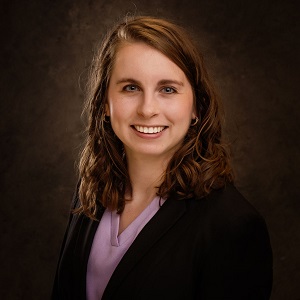
Faith Ericson, 26
University of Kansas School of Medicine
Family medicine
For Faith Ericson, growing up on a farm in Logan, Kansas, a town with a population of less than 500 people, meant nobody was a stranger.
“You knew everybody and their dogs,” she says. “Everybody was willing to lend a helping hand.”
She remembers her teachers in junior high — including her uncle, who taught math — staying late to help the members of the girls basketball team clear off their cars after an ice storm hit while they were in practice.
But while rural life instilled in Ericson a strong sense of family and community values, it also came with its challenges. The nearest hospital is 30 minutes away, making it a race to save her grandfather’s life the three times he had a heart attack. And when her grandmother was diagnosed with cancer when Ericson was a child, she remembers the strain on her family of having to drive nearly six hours for treatment at the University of Kansas Medical Center in Kansas City.
Seeing these barriers to access was part of what inspired Ericson to want to become a physician.
The first challenge, though, was adjusting to college at the University of Kansas in Lawrence, where there were more people in her freshman dorm than in her entire hometown. She found she was behind some of her peers in her science classes, since her high school hadn’t offered advanced placement or honors courses.
By her junior year, Ericson had adapted and started to carve her path to medical school at her alma mater’s medical campus in Salina, a city of about 46,000 people that’s halfway between Kansas City and Ericson’s hometown. Her medical school class has eight people, and the city seems to be made up of “farmers who moved into town,” making her feel more at home.
She also met her now-husband in Salina, and they welcomed their first child in February 2025.
Ericson hopes to match into a family medicine residency that prioritizes reaching out to underserved communities, like the one she grew up in.
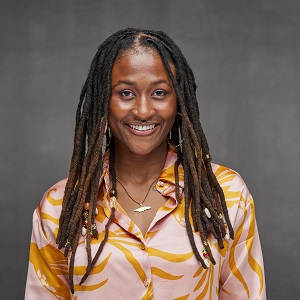
Shantell McLaggan, 29
East Carolina University Brody School of Medicine
Obstetrics gynecology
Shantell McLaggan says that for as long as she can remember, “my mom constantly told me that she wanted me to become a doctor and take care of women.” McLaggan thinks she knows why: Her mother’s primary care physician was an obstetrician-gynecologist (OB-GYN), “and she had a great relationship with her [doctor]. Parents always want the best for their kids. Her vision of the best was her OB-GYN.”
McLaggan’s parents had immigrated from Jamaica to Davidson County, North Carolina, to raise a family and continue farming. McLaggan grew up raising goats and chickens (for milk and eggs) and growing corn, peppers, and vegetables native to Jamaica, such as callaloo. She learned how to overcome challenges with scarce resources, and the value of strong community connection. “I cannot stress enough how much I loved growing up in a rural community,” she says.
She saw disadvantages too, such as long distances to hospitals and specialized care. McLaggan’s mom died when McLaggan was eight, from causes that were never determined. When her mother became critically ill, it took longer for the ambulance to get her to the nearest hospital than it might have if she lived in a more metropolitan location — a journey that McLaggan thinks might have contributed to her death.
Through her clinical work at a medical school surrounded by rural areas, McLaggan has seen how she can connect with people with similar backgrounds to hers.
“I’ll talk to patients about growing crops,” she says. That often leads to conversations about health, such as “how we can incorporate healthier foods into our diets.”
She practiced more rural medical care through an elective in February, at a clinic in Zambia, where she focused on pediatrics. The clinic staff routinely provided treatments for conditions that needed specialized follow-up care in distant cities, and often served as de facto social workers for the patients, such as “finding ways for them to get to their appointments.”
As she embarks on her career in medicine, McLaggan “would be honored to serve a rural community. Part of my life’s mission is to do rural global health and make a difference in as many lives as possible.”

